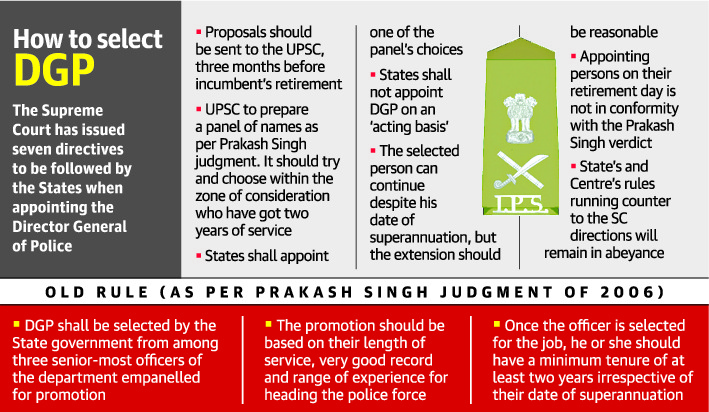Context:
-
The Supreme Court restrained the State governments from appointing Directors-General of Police without first consulting the Union Public Service Commission (UPSC).
New rules:
-
The State government concerned has to send to the service commission the names of the probables three months before the incumbent DGP is to retire.
-
The UPSC will prepare a list of three officers fit to be DGP and send it back.
-
It shall, as far as practicable, choose the people who have got a clear two years of service and must give due weightage to merit and seniority.
-
The State, in turn, shall immediately appoint one of the persons shortlisted by the commission.
-
States may make an endeavour to allow the DGP appointed to continue in office despite his or her date of superannuation, this extension of tenure should be only for a reasonable period.
-
On the practice of States appointing ‘Acting DGPs’, the court ordered that States shall not ever conceive of the idea of such appointments. There is no concept of Acting DGPs.
Why this verdict?
-
In 2006, the court passed seven directives, primarily to ensure that State governments do not exercise unwarranted influence or pressure on the police.
-
The court directed the States to ensure that the DGP is appointed through a merit-based transparent process and secure a minimum tenure of two years.
-
The Centre submitted that of 29 States only five have implemented the Supreme Court direction of 2006 to consult the UPSC on the appointment of DGPs.
-
Venugopal submitted that some State governments have even gone to the extent of appointing their favourite officers as DGP on the very date of their retirement so that they would continue to serve for another two years till the age of 62.
-
Distortion and aberrations have crept into the procedure regarding the appointment of DGPs and the manner in which it is being manipulated by political masters with the connivance of the bureaucracy.



Source: